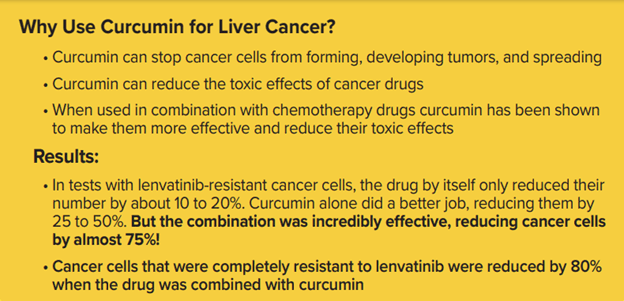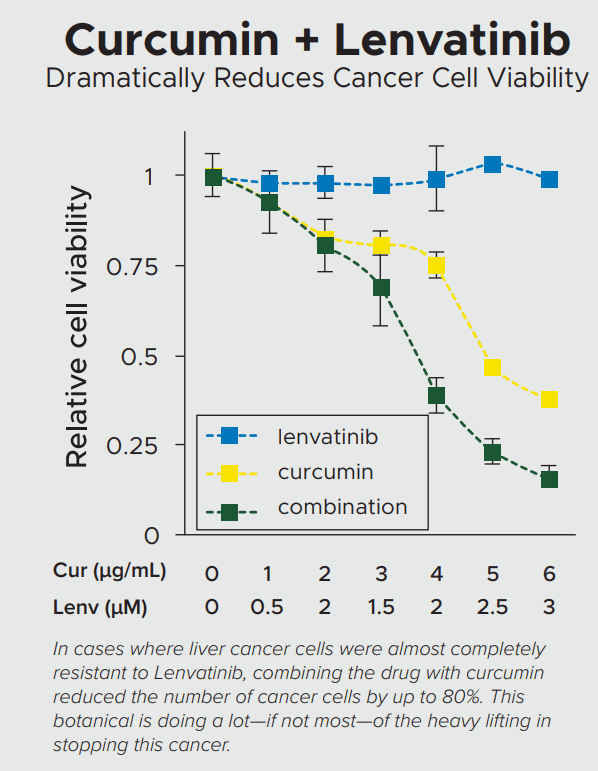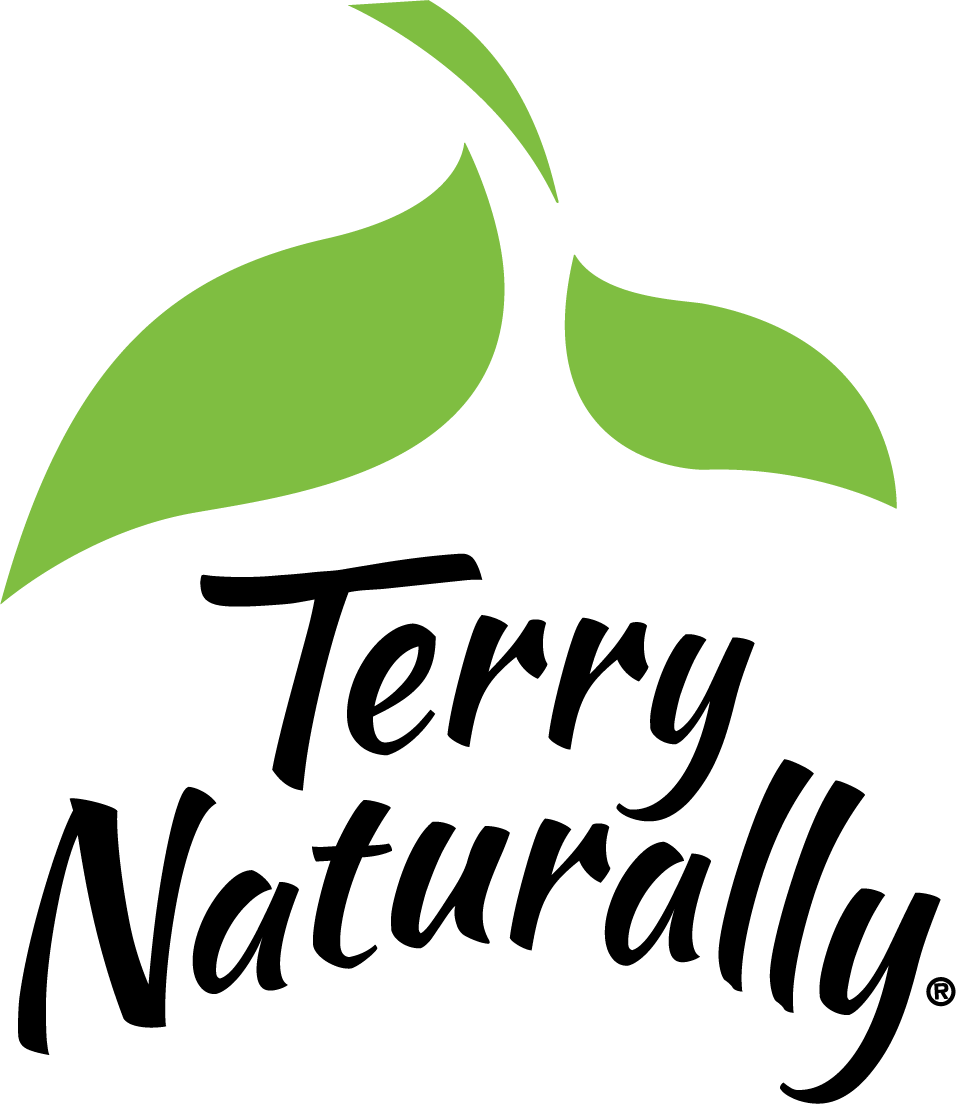Curcumin-Mediated Resistance to Lenvatinib via EGFR Signaling Pathway in Hepatocellular Carcinoma.
Miyazaki K, Morine Y, Xu C, Nakasu C, Wada Y, Teraoku H, Yamada S, Saito Y, Ikemoto T, Shimada M, Goel A. Cells. 2023 Feb 14;12(4):612.
BACKGROUND: Lenvatinib is a multi-kinase inhibitor approved as a first-line treatment for patients with unresectable advanced hepatocellular carcinoma (HCC). However, its response rate is unsatisfactory, primarily due to the acquisition of resistance, which limits its clinical significance for treating patients with HCC. Recent evidence suggests that epidermal growth factor receptor (EGFR) activation can trigger Lenvatinib-resistance; and is considered an important therapeutic target in HCC. Curcumin, one of the most studied naturally occurring botanicals with robust anti-cancer activity, is also reported to be a potent tyrosine kinase inhibitor.
METHODS: In this study, we hypothesized that the anti-EGFR potential of Curcumin might help overcome Lenvatinib resistance in HCC. We established two Lenvatinib-resistant cells and discovered that a combination of Curcumin and Lenvatinib exhibited a synergistic anti-tumor efficacy in the resistant HCC cell lines. In line with previous reports, Lenvatinib-resistant cell lines revealed significant activation of the EGFR, and genome-wide transcriptomic profiling analysis identified that the PI3K-AKT pathway was associated with Lenvatinib resistance.
RESULTS: The combination treatment with curcumin and lenvatinib dramatically suppressed gene and protein expression of the EGFR-PI3K-AKT pathway, suggesting Curcumin overcomes Lenvatinib resistance via inhibition of EGFR. We further validated these findings in tumor spheroids derived from resistant cell lines.
CONCLUSION: In conclusion, we, for the first time, report that Curcumin reverses Lenvatinib resistance in HCC, and that their combination has clinical application potential for adjunctive treatment in HCC.
WHAT THIS MEANS FOR YOU:

CURCUMIN HELPS DELIVER DRAMATIC RESULTS

Hepatocellular carcinoma (HCC) is the most common form of liver cancer. Diagnosed early, it can be treated with surgery to remove the cancer. However, when surgery is not an option, drugs like lenvatinib are used instead. Unfortunately, lenvatinib isn’t especially effective (response rates are only about 24 percent), and resistance develops quickly.
Because curcumin can stop cancer cell formation and has a strong track record of enhancing the effects of chemotherapy drugs, researchers tested a specific curcumin extract (BCM-95) against liver cancer cells on its own and combined with lenvatanib. The results were impressive.
Curcumin was incredibly effective against all of the liver cancer cell types used in the study, including drug-resistant cancer cells. But the combination of lenvatinib and curcumin worked best. Together, curcumin and lenvatinib reduced cancer cell colony formation by as much as 72.4%.
One of the reasons HCC develops a resistance to lenvatinib is due to an overexpression of the epidermal growth factor receptor (EGFR) gene, which is also responsible for the survival of cancer stem cells that can cause tumors to return. Understandably, this gene is a frequent target in fighting liver cancer. Fortunately, curcumin is a natural inhibitor of tyrosine kinases, the enzyme family that is home to EGFR. EGFR can act as an “on-switch” for cancer cell growth, so finding that curcumin modulates this activity so powerfully is important to any treatment protocol.
This study represents more evidence to support the addition of curcumin to first-line treatment of cancer, especially for those with limited options to treat their disease. The addition of curcumin could mean the difference between a marginally effective treatment, and a truly life-extending one.
